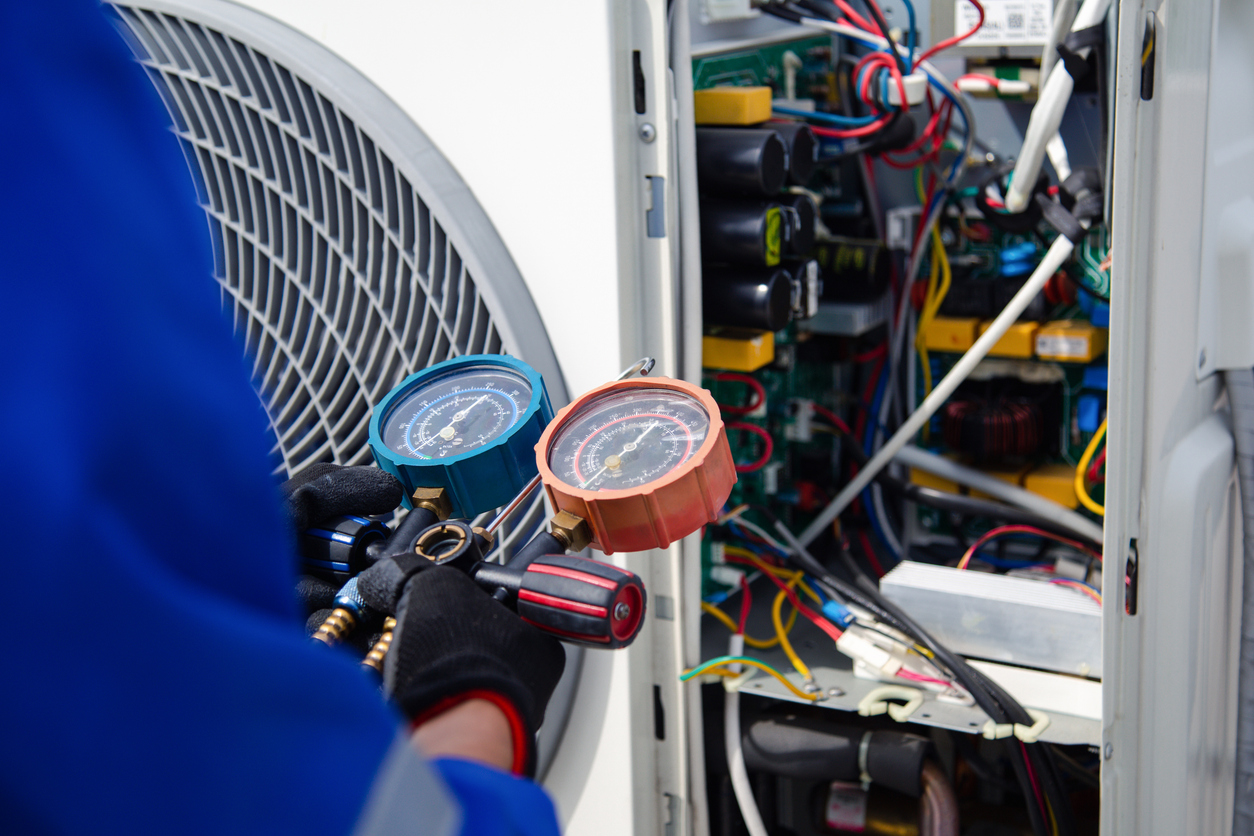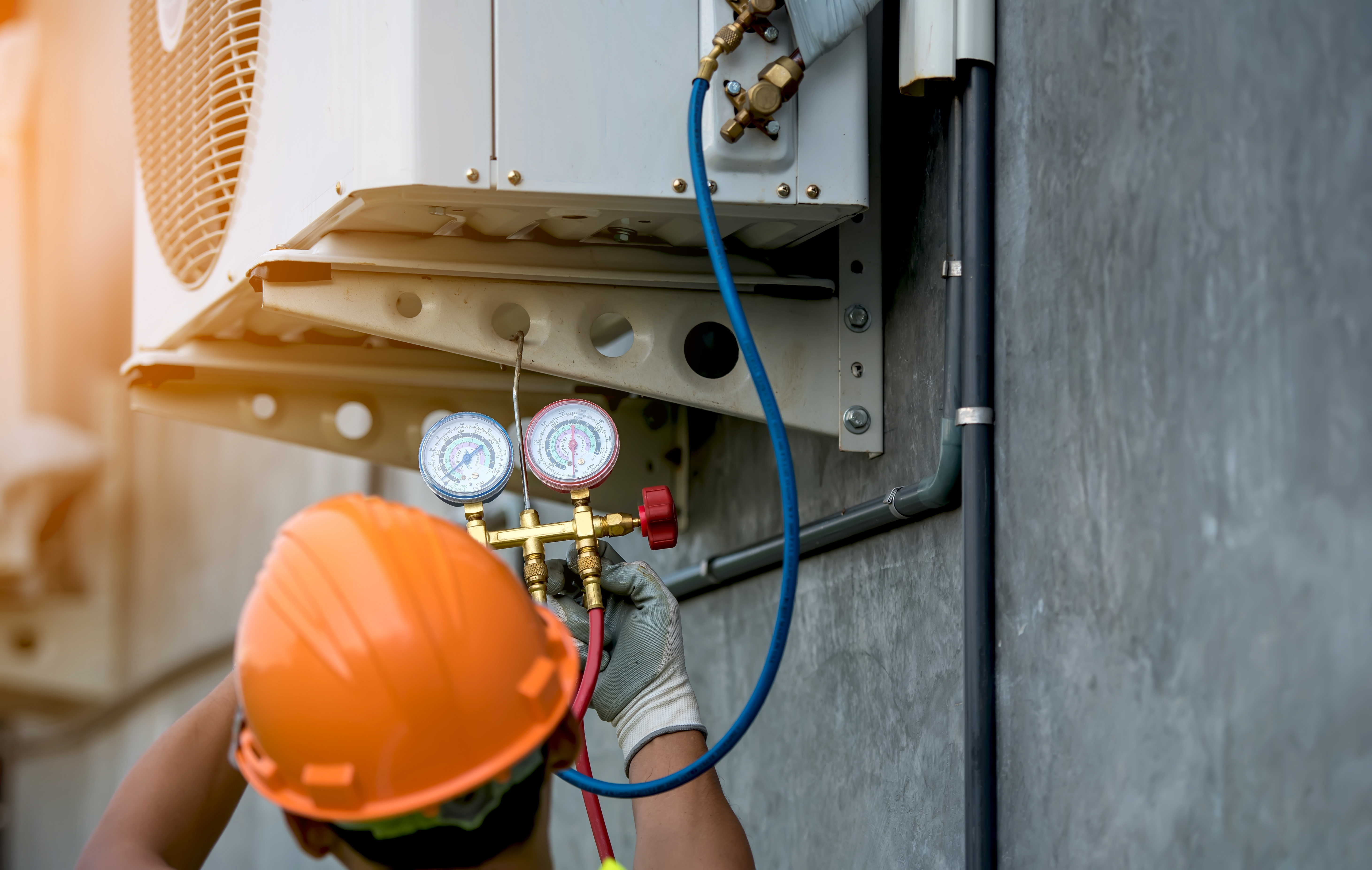HVAC company vs independent tech: choosing wisely
The Importance of Heating And Cooling Understanding: Uncovering Sources Of Air Conditioning Issues for House Owners
Homeowners commonly overlook the significance of understanding their HVAC systems. Recognizing common indications of cooling issues can bring about timely interventions. Concerns like inadequate cooling or uncommon sounds are not just nuisances; they can suggest deeper worries. By exploring the source of these problems, homeowners can enhance system performance and prolong its life-span. What are one of the most common problems that can emerge, and exactly how can they be properly addressed?
Common Indications of A/c Problems
Just how can homeowners identify problems with their cooling systems prior to they escalate? Recognizing usual indications of air conditioner troubles is essential for prompt upkeep. One prevalent indication wants air conditioning; if the cooling unit fails to decrease the interior temperature level, it might indicate underlying problems. Unusual noises, such as grinding or hissing, can also show mechanical failings or loose elements - ac fix. In addition, homeowners must be wary of unusual odors rising from the system, which might recommend mold and mildew growth or electric problems. Regular cycling on and off, referred to as brief cycling, can indicate thermostat concerns or refrigerant leaks. In addition, a rise in power costs without a corresponding surge in use may aim to inadequacy. By staying alert to these indication, property owners can avoid much more significant problems and expensive repairs, guaranteeing their cooling systems run effectively throughout the warmer months

Comprehending Refrigerant Issues
Refrigerant concerns can significantly influence the effectiveness of a heating and cooling system. Property owners should know the indications of reduced cooling agent levels and the importance of finding cooling agent leaks. Dealing with these issues immediately can prevent additional damages to the system and guarantee height cooling down efficiency.
Low Cooling Agent Levels
A common problem that house owners might run into with their a/c systems is reduced refrigerant levels, which can substantially affect the system's performance and efficiency. Cooling agent is essential for the cooling procedure, absorbing warm from indoor air and launching it outside. When levels drop, the cooling system struggles to cool the space efficiently, causing boosted power consumption and prospective system stress. Signs and symptoms of low refrigerant include insufficient cooling, longer run times, and ice development on the evaporator coils. Homeowners might likewise observe uncommon noises as the compressor functions harder to make up for the shortage. It is crucial for house owners to recognize the importance of keeping appropriate refrigerant degrees to assure peak HVAC efficiency and long life.
Refrigerant Leaks Detection
Where might a homeowner begin when faced with the opportunity of refrigerant leaks in their a/c system? The initial step involves keeping an eye on the system's efficiency. Indicators such as lowered cooling performance, ice formation on coils, or hissing audios may indicate a cooling agent leakage. House owners should also check for noticeable indications of oil deposit, usually a warning indication of a leak. Using a cooling agent leakage detector can supply more exact recognition. If suspicions linger, getting in touch with a licensed heating and cooling specialist is essential, as they have the expertise and devices to locate leaks properly. Motivate discovery and repair work of refrigerant leakages not only improve system efficiency however also avoid prospective ecological damage, making it an essential facet of a/c maintenance.
Electric Failures and Their Impact
Electrical failures can considerably influence a/c systems, specifically via concerns like circuit breaker malfunctions and faulty electrical wiring. These troubles not just disrupt the system's performance but can likewise bring about expensive fixings and safety and security dangers. Understanding the implications of such failures is crucial for house owners to keep an efficient and risk-free cooling and heating environment.
Circuit Breaker Issues
Exactly how can circuit breaker concerns affect the efficiency of a cooling and heating system? Circuit breakers work as critical security tools that handle electrical circulation to heating and cooling units. If a circuit breaker journeys often, it interferes with power supply, leading to irregular heating or cooling. This can create considerable strain on the system, resulting in ineffective procedure and possible damages to components. Property owners might discover enhanced air conditioner repair energy costs as a result of the a/c system's struggle to keep desired temperature levels. Additionally, duplicated interruptions from stumbled breakers can reduce the life-span of the a/c system, needing costly repair services or replacements. Routine maintenance of breaker is important, as it ensures a steady power supply, ultimately enhancing the general efficiency of the cooling and heating system.
Faulty Electrical Wiring Impact
Often ignored, malfunctioning electrical wiring can have alarming effects for a/c systems. Electrical wiring concerns may bring about short circuits, leading to regular break downs and raised repair service costs. Additionally, incorrect circuitry can create inefficient energy usage, bring about higher utility costs and strain on the system. In extreme instances, malfunctioning circuitry can cause electrical fires, posing a considerable security danger to home owners. Moreover, these electric failures can harm cooling and heating parts, causing costly substitutes or considerable fixings. Home owners must prioritize routine assessments by certified experts to identify and correct electrical wiring problems before they escalate. Comprehending the ramifications of defective electrical wiring can help ensure the long life and safety and security of cooling and heating systems, ultimately protecting both the home and its owners.
Clogged Filters and Their Consequences
While lots of property owners might overlook the importance of normal filter upkeep, stopped up filters can lead to significant repercussions for heating and cooling systems. When filters end up being obstructed with dust, dust, and particles, air flow is limited. This decrease in air movement compels the system to function harder, resulting in boosted power usage and potentially greater energy costs. In time, this pressure can trigger deterioration on elements, causing premature system failure.
Furthermore, clogged up filters can compromise indoor air high quality. Toxins and allergens might flow throughout the home, exacerbating breathing problems and allergies for residents. In addition, poor air flow can cause the evaporator coil to freeze, causing costly repair work and ineffective cooling performance. Frequently altering or cleaning up filters is a straightforward yet crucial maintenance task that can help guarantee the long life and performance of heating and cooling systems, ultimately profiting both the house owner's convenience and their funds.

Thermostat Malfunctions Discussed
What occurs when a thermostat malfunctions can significantly impact both convenience and energy efficiency in a home (HVAC company). A defective thermostat may fail to accurately review the temperature, causing overcooling or not enough air conditioning. This disparity can cause pain for occupants and result in greater energy bills, as the a/c system functions more challenging than necessary
Typical issues consist of dead batteries, which can make digital thermostats defective, and loose circuitry that interrupts interaction between the thermostat and the cooling and heating unit. Additionally, out-of-date or poorly adjusted thermostats may not respond properly to temperature changes, further worsening power ineffectiveness.
Property owners ought to be cautious for indicators of malfunction, such as irregular temperatures or unanticipated energy prices. Regular checks and understanding of the thermostat's performance can help identify issues early, making sure peak performance of the HVAC system. Attending to thermostat issues promptly is essential for keeping a comfortable living atmosphere and managing power usage efficiently.
The Duty of Regular Upkeep
Normal maintenance plays an important duty in making sure the longevity and efficiency of HVAC systems. House owners who focus on regular checks can protect against small issues from rising right into expensive repair services. Routine upkeep generally includes tasks such as cleansing filters, checking ductwork, and checking cooling agent degrees. These activities aid maintain ideal airflow and system efficiency, reducing energy usage.
Moreover, a properly maintained heating and cooling system operates extra effectively, supplying regular convenience throughout the home. Normal tune-ups can also expand the life-span of the device, resulting in considerable financial savings gradually. Homeowners are urged to arrange professional inspections at least annually to identify prospective troubles early.
On top of that, lots of manufacturers call for normal upkeep to copyright warranties, making this practice not just valuable but commonly needed. Generally, understanding the importance of routine upkeep equips homeowners to guard their a/c systems versus unanticipated failures and enhance their financial investment in home convenience.
Often Asked Questions
Exactly How Can I Enhance My Ac's Power Performance?
Improving an air conditioner's power performance includes regular upkeep, cleaning or changing filters, sealing ductwork, making certain proper insulation, making use of programmable thermostats, and scheduling specialist assessments to determine and fix potential problems affecting efficiency.
What Is the Life expectancy of a Normal Air Conditioning Device?
A typical cooling device has a lifespan of 15 to twenty years, depending upon upkeep, use, and environmental variables. Regular maintenance can considerably extend its functional life and boost total effectiveness.
When Should I Change My Cooling System?
An air conditioning system must commonly be changed every 10 to 15 years. Signs for replacement include regular repair services, climbing power bills, and inadequate air conditioning, showing that an upgrade might be a lot more cost-effective and effective.
Can I Troubleshoot Air Conditioner Problems Myself?
Yes, individuals can fix air conditioner issues themselves by checking filters, guaranteeing power supply, and examining for noticeable problems (AC repairman). Complicated issues usually require professional assistance for exact diagnosis and safe fixing, making sure ideal system efficiency.
How Do I Select a Trusted Cooling And Heating Service Technician?

To pick a reliable HVAC professional, one must seek recommendations, check on-line evaluations, verify licenses and insurance coverage, examine experience, and request detailed quotes to guarantee top quality service and reasonable pricing prior to choosing.
Conclusion
To summarize, a strong understanding of HVAC systems allows property owners to properly diagnose and resolve common air conditioning issues. Acknowledging indications such as inadequate air conditioning or climbing energy costs enables for prompt interventions, which can greatly boost system performance and longevity. By remaining informed about potential problems like refrigerant leaks, electric failings, and blocked filters, home owners can take proactive measures to maintain their systems, inevitably guaranteeing convenience and advertising a much healthier living environment. Regular upkeep remains vital to this undertaking.